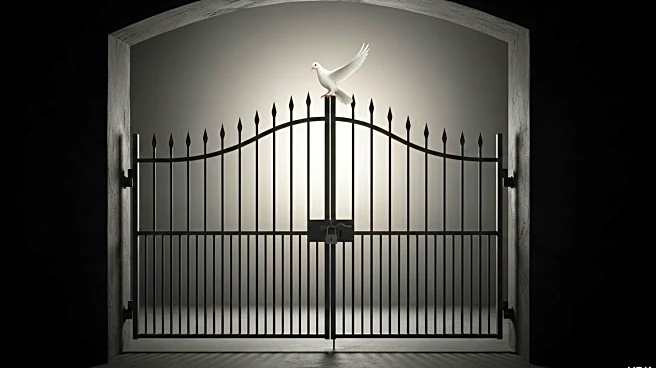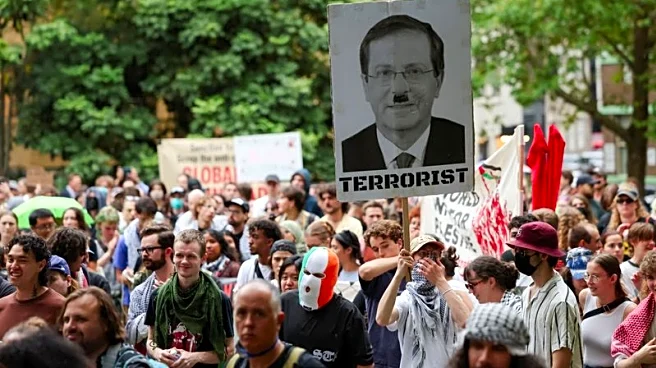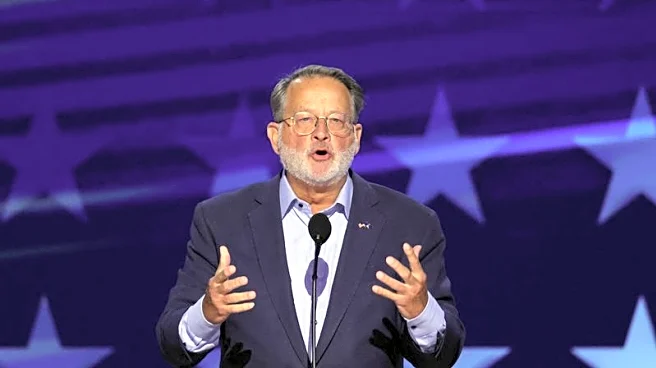What is the story about?
What's Happening?
A United Nations human rights expert, Mariana Katzarova, has reported an escalation in repression by Russian authorities aimed at silencing opposition to the war in Ukraine. Katzarova, who serves as the U.N. special rapporteur on human rights in Russia, presented her findings to the Human Rights Council. Her report highlights the use of criminal prosecution, long-term imprisonment, torture, and ill-treatment as tools to suppress dissent. The report covers the period from mid-2024 and notes that at least 3,905 individuals have been convicted on charges related to peaceful dissent. Additionally, over 150 children aged 14 to 17 have been labeled as extremists or terrorists, with some subjected to torture to extract confessions. The report also documents 258 cases of torture affecting Russian citizens, Ukrainian prisoners of war, and civilian detainees.
Why It's Important?
The findings presented by Katzarova underscore the severe human rights violations occurring in Russia, which have significant implications for international relations and human rights advocacy. The repression of dissent not only affects Russian citizens but also Ukrainian prisoners, highlighting the broader impact of the conflict. This escalation in human rights abuses could lead to increased international scrutiny and pressure on Russia, potentially affecting diplomatic relations and policy decisions. The targeting of journalists and labeling of individuals as foreign agents further threatens freedom of expression and press freedom, which are critical components of democratic societies.
What's Next?
The report's presentation to the Human Rights Council may prompt further investigations and actions by international bodies to address the human rights situation in Russia. There could be calls for sanctions or diplomatic measures aimed at curbing these abuses. Human rights organizations and advocacy groups are likely to increase their efforts to bring attention to these issues and support affected individuals. The Russian government's response, which has so far been dismissive of the U.N. mandate, will be crucial in determining the next steps in addressing these human rights concerns.
Beyond the Headlines
The repression in Russia raises ethical questions about the use of torture and the treatment of minors in conflict situations. It also highlights the challenges faced by international human rights bodies in holding powerful nations accountable. The cultural and societal impact of labeling young individuals as extremists could have long-term effects on Russian society, potentially fostering a climate of fear and mistrust. The international community's response to these findings will be indicative of the global commitment to human rights and the protection of vulnerable populations.















